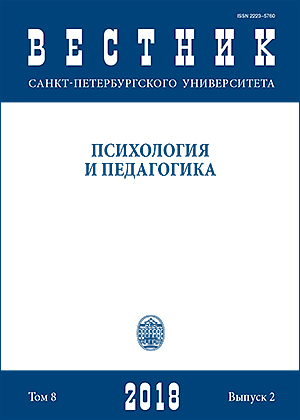Types of reaction in conflict and their relation to dominant mental state of athletes
DOI:
https://doi.org/10.21638/11701/spbu16.2018.206Abstract
The work looks into two psychological phenomena important in sports — mental state at the personal level and types of response during a conflict. Theoretical significance is determined by the importance of studying them for the sake of understanding other more general problems, in particular, conflicts within sporting activity. The research was meant to be comparative supposing the following factors to be significant: a) specialization within one sport (individual and team sport); b) various sports (high coordination sports and games); c) regular sporting practice (athletes and non-athletes). The sample group included girls aged 13–16, highly qualified in callisthenics, synchronized swimming, volleyball and handball (the total of 69 girls) and non-athletes (23 girls). An extensive methodology, including psychodiagnostics, statistic data processing and structural psychological analysis, was applied for solving main research tasks. In the course of research, a direct impact of the mental state on the type of response during a conflict with minimal reverse influence has been discovered. The assertive type of response in sporting conflicts has proved to be predominant in all researched groups of athletes, being best manifested among individual athletes in high coordination sports. Specialization peculiarities within a certain sport are manifested in the way various characteristics of dominant mental states affect the choice of assertive type of response in a conflict. Analysis of different types of response among athletes and non-athletes revealed the ‘aggression’ type to be widespread among non-athletes, with ‘solution’ type being predominant among athletes.
Keywords:
conflict, reaction type in the conflict, dominant mental state, team and individual sports
Downloads
References
References
Downloads
Published
How to Cite
Issue
Section
License
Articles of "Vestnik of Saint Petersburg University. Psychology" are open access distributed under the terms of the License Agreement with Saint Petersburg State University, which permits to the authors unrestricted distribution and self-archiving free of charge.




